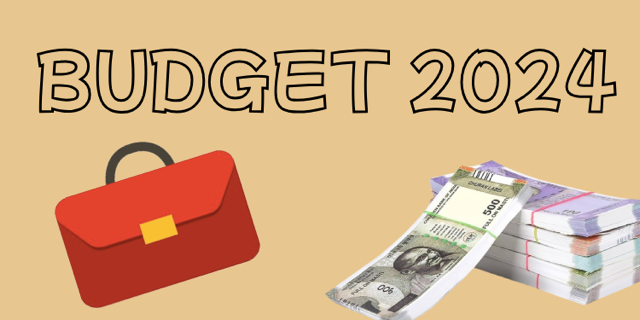The Union Budget 2024, presented by Finance Minister Nirmala Sitharaman, is expected to focus on income tax relief and infrastructure spending to stimulate GDP growth. Various industries have high expectations. The retail and manufacturing sectors seek expansion in digital infrastructure, deeper Make in India engagement, and sustainable practices.
The technology and startup ecosystem looks for regulatory support, efficient funding, and enhancements in electronics policy to strengthen local manufacturing and global competitiveness.
The travel and tourism industry anticipates improvements in connectivity and infrastructure to boost local economies and tourism. Education and EdTech sectors aim for tax breaks and exemptions on GST for marketing expenses to enhance education quality and infrastructure. The digital economy and content creation sectors need continued investment in digital infrastructure. Technology and AI industries seek support for startups, ethical guidelines for AI, and investments in research and development. The advertising and media sectors expect tax incentives, regulatory clarity, and digital literacy initiatives to drive growth and innovation.

“We are optimistic about the upcoming budget’s potential to prioritize key areas that will drive quality and innovation in the industry. We look forward to the continued rapid expansion of infrastructure, particularly digital infrastructure, across the country. Additionally, we aim to deepen the Make in India initiative to help us cater to both domestic and export markets, and advocate for provisions that promote sustainable practices, including incentives for eco-friendly materials and green manufacturing. Investments in vocational training are essential to equip our workforce with contemporary skills. Lastly, initiatives aimed at increasing consumer income will definitely boost purchasing power and stimulate demand.”
——Susanne Pulverer, CEO and CSO, IKEA India

“India’s path to ‘Viksit Bharat’ hinges on nurturing technology breakthroughs through deep tech entrepreneurship. It is crucial for the new government to establish a strong regulatory framework to support the startup ecosystem and ensure efficient fund allocation to encourage strategic R&D efforts. Some improvisation in the National Policy on Electronics (NPE) can boost manufacturing by strengthening local smart wearable production and enhancing India’s global presence.
Guided by Aatmanirbhar Bharat, we additionally seek government support for extensively localizing component production, fostering a lucrative environment where homegrown brands can lead globally. Incentivizing domestic production through tax breaks, subsidies, and R&D funding will enhance India’s manufacturing capabilities. We are ready to collaborate with the government to make India a global leader in the smart wearable industry, driving economic growth, creating jobs, and delivering innovative products that enhance millions of lives.”
—- Amit Khatri, Co-Founder, Noise

As India gears up for a full budget following the elections, the travel and tourism industry is poised for significant growth and development. The interim budget of February 2024 had already set a positive roadmap, with substantial increases in budgetary allocations for the tourism ministry, highlighting a clear focus on enhancing tourism infrastructure. This approach aims to boost domestic tourism and create new job opportunities.
The government’s commitment to improving connectivity through new railway and port corridors, alongside the growth of air connectivity and airport infrastructure, aligns with the broader economic goals. These initiatives are expected to stimulate local economies and attract both domestic and international tourists.
The emphasis on Foreign Direct Investment (FDI) and the development of iconic tourist centers further underscore the government’s strategy to leverage tourism as a catalyst for economic growth. While there were some reductions in overseas promotion budgets, the focus on developing infrastructure and connectivity is anticipated to have a long-term positive impact.
In the aviation sector, the doubling of airports and the success of the Udan scheme are notable achievements. The planned expansion of rail services and the continued development of new airports will further enhance travel experiences across India.
Overall, the travel and tourism industry is set to benefit from these strategic initiatives, fostering growth, employment, and increased international collaboration. The new budget is expected to build on these foundations, ensuring sustained progress and positioning India as a premier global tourist destination.
—-Nishant Pitti, CEO and Co-Founder, EaseMyTrip
 “As the Union Budget 2024 nears, there is optimism that this will bring notable initiatives to boost the education sector and enhance digital marketing efforts. A key challenge that faces many educational institutions which are mostly under non-profit trusts is their inability to claim credit of GST on any of their marketing expenses. To make the public aware of their programs, these institutions put a lot of money into web site development but end up paying GST charges each month. In contrast, if these marketing costs qualify for some kind of exemption or relaxation from GST, it would ease this financial pressure and allow schools to spend more on quality education and infrastructure.
“As the Union Budget 2024 nears, there is optimism that this will bring notable initiatives to boost the education sector and enhance digital marketing efforts. A key challenge that faces many educational institutions which are mostly under non-profit trusts is their inability to claim credit of GST on any of their marketing expenses. To make the public aware of their programs, these institutions put a lot of money into web site development but end up paying GST charges each month. In contrast, if these marketing costs qualify for some kind of exemption or relaxation from GST, it would ease this financial pressure and allow schools to spend more on quality education and infrastructure.
Also, EdTech companies are very essential in transforming the face of education but struggle to meet huge operational costs. Offering tax breaks for investing in EdTech can promote more creativity and cooperation among educational institutes and technology suppliers as a whole, thus benefiting teachers together with students at large. These measures during the budgeting period are important towards equipping workers adequately for future challenges and ensuring that India continues leading in the global digital economy.”
— Dr Vikram Kumar, MD and Founder, SRV Media

” In previous budgets, the government has recognized the significant impact of digital platforms and content creation, but more focused initiatives are needed to address the unique challenges faced by influencers and marketers alike. The previous budget introduced measures to improve digital infrastructure and internet penetration, which are critical for the creator economy. Continued investment in digital infrastructure is crucial for the expansion of the creator economy. The previous budgets have focused on enhancing internet penetration and connectivity, which is essential for creators to reach wider audiences. Further improvements in internet speed, accessibility, and affordability will enable more individuals to participate in the digital economy.”
—-Vaibhav Gupta, Co-Founder and CPO, KlugKlug

“We are hopeful that the Union Budget 2024 will continue to foster a conducive environment for technological innovation. The previous budgets have shown a commitment to infrastructure development, with a focus on creating a $5 trillion economy. We emphasize the need for targeted support for startups and ethical guidelines for generative AI. Startups are the backbone of innovation, driving economic growth and creating jobs.
The government should simplify regulatory processes, provide tax incentives, and ensure better access to funding for early-stage ventures. Additionally, the rapid advancement of generative AI necessitates clear and enforceable ethical guidelines to ensure responsible development and deployment. We urge the government to invest in AI research and development, skill development programs, and create public-private partnerships to foster innovation while safeguarding ethical standards.
——Pankaj K Arora, Co-Founder, Whilter.ai

There is a strong desire for supportive fiscal policies that encourage innovation and growth across the Advertising Industry. This includes expectations for tax incentives that stimulate investment in digital infrastructure and technology, essential for keeping pace with global standards.
I feel, regulatory clarity is paramount. The industry seeks clear guidelines that not only ensure fair competition but also uphold consumer privacy and data protection. This regulatory framework is crucial for building trust among users and stakeholders alike.
Moreover, there should be initiatives that promote digital literacy and skill development. As digital technologies continue to evolve rapidly, there is a growing need to equip the workforce with the necessary skills to thrive in this digital-first era.
——Krisneil Peres, Co-Founder and CVO(Chief Visionary Officer) at Fame Keeda

”We are anticipating a boost for digital advertising, given the government’s push for a digital economy. We expect increased allocations for rural broadband and 5G rollout, which could expand our addressable market. Compared to last few months, we might see more support for local content creation and AdTech startups. The upcoming Union Budget may introduce policies that indirectly bolster India’s retail media landscape. We could see funding allocations aimed at strengthening digital infrastructure and data security, which are crucial for the growth of e-commerce platforms and their advertising capabilities. The budget might also address regulations around data usage and privacy, potentially shaping how retail media networks operate and monetize their first-party data. Beyond just digital, we anticipate targeted measures to boost the entire media ecosystem. A key area to watch is any announcement on regulating emerging technologies like AI in advertising. This could have far-reaching implications for personalization and ad fraud prevention. Lastly, given the global economic headwinds, the budget might include measures to attract more foreign investment in our AdTech sector, potentially accelerating innovation and growth.”
——Russhabh R Thakkar, Founder and CEO, Frodoh World

















